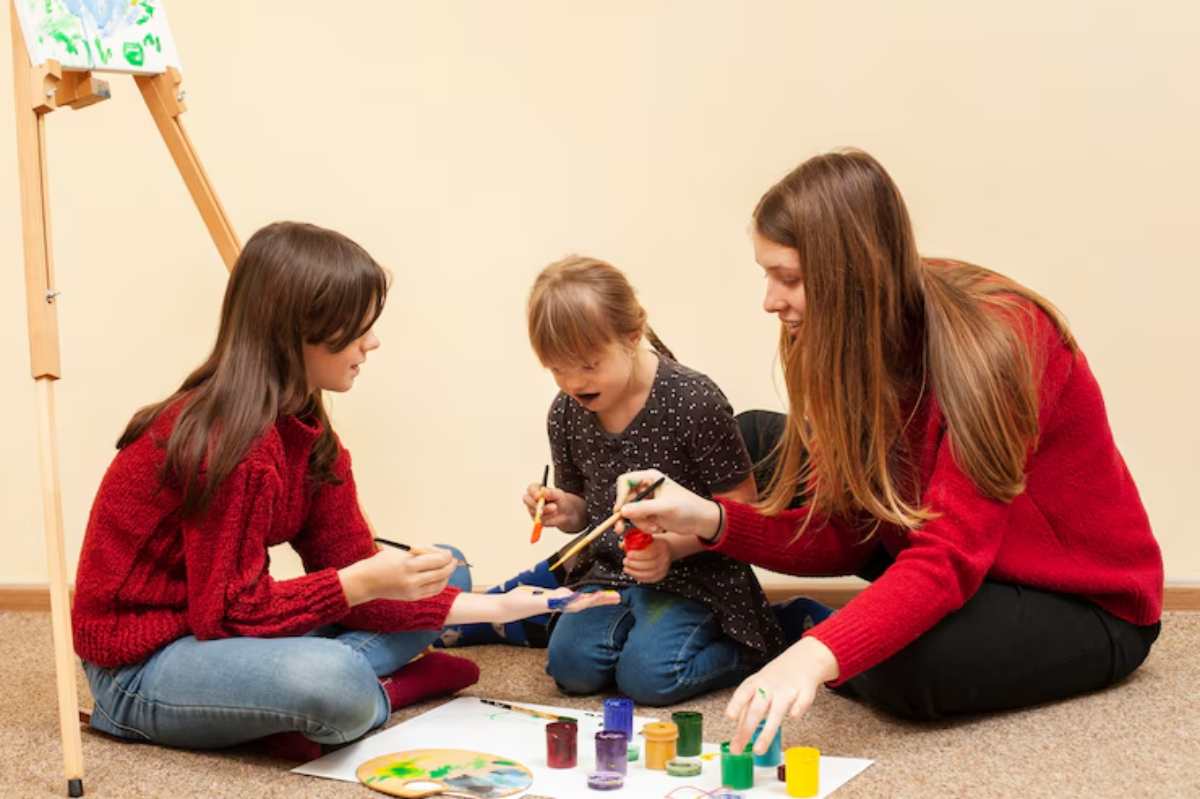
Encouraging Teamwork Between Siblings
Sibling relationships are among the most formative in a child’s life. These early bonds often serve as a child’s first lessons in negotiation, empathy, compromise, and shared responsibility. Encouraging teamwork among siblings goes beyond just stopping fights. It’s also about helping them build important life skills for adulthood.
While occasional disagreements are part of growing up, too much conflict can disrupt family harmony. In contrast, when siblings learn to work together, they create a strong foundation for lifelong connection and support. This blog looks at why teamwork among siblings is important. It also shares tips to build it and easy ways to encourage cooperation in your home routines.
Why It Matters

The Importance of Cooperation Among Siblings
Cooperation doesn’t always come naturally to kids, especially when they’re close in age or very different in personality. However, fostering teamwork between siblings helps them:
- Develop conflict resolution skills
- Understand perspectives beyond their own
- Learn to share responsibilities
- Build resilience in group settings
These skills do more than smooth daily routines. They also get children ready for teamwork in school, work, and relationships.
The Role of Parents in Guiding Sibling Dynamics
Parents play a central role in setting the tone for sibling relationships. Parents can change competition to cooperation and rivalry to respect. They do this by showing respectful communication and promoting teamwork. Your words, reactions, and expectations shape how your children see and treat one another.
Key Benefits of Sibling Teamwork

1. Strengthened Emotional Bonds
When siblings reach goals together—like building a LEGO set or cleaning their room—they link each other to good results. This builds trust and shared memories that enhance their connection.
2. Improved Household Functioning
Siblings who know how to divide tasks or solve problems together take pressure off parents. Whether it’s setting the dinner table or tidying shared spaces, cooperation makes the household run smoother.
3. Enhanced Social Skills
Collaborative siblings learn essential interpersonal skills like patience, negotiation, and active listening. These lessons carry over to friendships, classrooms, and future workplaces.
4. Reduced Parental Intervention
When kids solve problems together, parents can referee less. This means they enjoy a more peaceful home.
Additional Expert Tips & Common Mistakes to Avoid
Practical Tips to Foster Sibling Teamwork
Encourage Joint Responsibilities
Assign tasks that require teamwork, such as folding laundry together or preparing a snack as a duo. This helps kids see that working with a sibling can be efficient and even enjoyable.
Highlight Shared Goals
Set small goals for siblings to achieve together. For example, they can read a certain number of books in a month. They could also earn a group reward for keeping their rooms clean. This shifts focus from competition to collaboration.
Offer Positive Reinforcement
Praise specific cooperative behaviours:
- “I loved how you helped your sister find her toy.”
- “Great job working together on the puzzle.” This shows that teamwork is valued in your home.
Use Cooperative Games and Activities
Board games, building kits, or group storytelling games are great ways to introduce cooperation in a fun, low-stakes setting. Choose games that require working together rather than winning individually.
Model Collaborative Problem-Solving
Let your children see you work with a partner. Show them how to solve problems respectfully. Let them watch you delegate tasks and handle disagreements calmly. Children mimic what they see far more than what they’re told.
Mistakes That Undermine Teamwork
- Comparing siblings: Even well-meaning comparisons can create rivalry. Instead of “Your brother finished his homework faster,” say, “How can we help each other stay focused?”
- Favouring one child’s suggestions: When siblings disagree, validate both opinions. Help them compromise rather than defaulting to the louder or older child.
- Over-intervening in disputes: Resist the urge to step in immediately. Encourage them to use their own words to resolve disagreements.
- Over-scheduling: Kids need unstructured time to connect naturally. Packed schedules can keep siblings from ever being in the same room long enough to bond.
Advanced Insights and Expert Recommendations
Understanding Developmental Differences
Cooperation expectations should be age-appropriate. A 5-year-old and a 12-year-old can’t be expected to handle tasks the same way. Consider complementary roles instead of equal ones—let the older sibling lead while the younger one assists.
When managing a wide age gap:
- Let older children teach or guide the younger ones in simple tasks
- Recognise and reward patience and mentoring
- Avoid giving one child authority over the other—frame it as teamwork, not command
Building a Cooperative Household Culture

Sustained sibling teamwork flourishes in families that value collaboration across the board.
Weekly Family Meetings
Hold short family meetings where everyone gets a turn to share thoughts, offer ideas, or bring up concerns. Use this time to assign shared projects and celebrate teamwork wins.
Storytelling and Media Choices
Read books or watch shows that highlight sibling teamwork and positive collaboration. Afterwards, discuss what the characters did well and how your children can apply those lessons.
Family Mission Statements
Create a simple mission statement like “In our family, we help each other and solve problems together.” Post it somewhere visible and refer to it often when resolving conflicts.
When to Seek Additional Support
If sibling conflict is constant or becoming aggressive, it may help to bring in a family counsellor. A neutral party can help assess underlying dynamics and offer strategies for restoring harmony.
Building a Foundation for Lifelong Bonding
Encouraging teamwork among siblings makes parenting easier. It also helps your kids be happier. Siblings who trust and support each other early on become reliable friends. They also grow into resilient problem-solvers and caring teammates in adulthood.
The key is consistency. Regularly offer chances to work together. Celebrate progress and help them handle conflict with fairness and empathy. Over time, your children will stop viewing each other as rivals. Instead, they will see each other as allies. They will work together, not just on chores, but in life.


